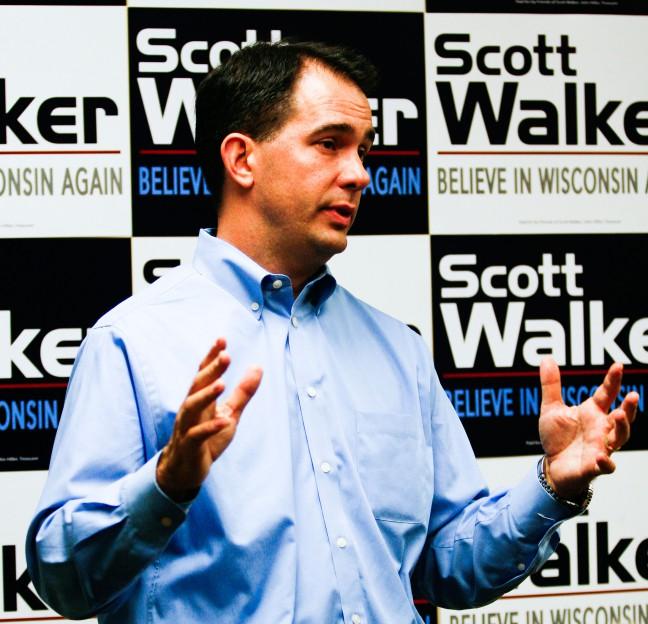Gov. Scott Walker has received massive push back on his comments about Canadian immigration and the supposed “border.” These critiques are unprecedented, considering Walker’s statements were taken out of context.
Roughly two weeks ago on Meet the Press, Chuck Todd asked Walker about the security on the U.S northern border with Canada.
Walker did his best trying to focus the conversation on the southern border with Mexico, but Todd ultimately won and Walker ended up talking about immigration as a whole.
Walker, like other 2016 presidential hopefuls, focused on the idea of a wall separating us from our southern neighbors.
Todd continued to grill Walker on why no one was talking about the northern border. Finally, Walker gave in and concluded border protection as a whole must be looked at seriously, and voters in New Hampshire were deeply concerned about the issue.
The transcript of the interview shows the one pushing the idea of Canadian border protection was actually Todd.
Politifact made a post putting Walker’s comments into context by showing Todd was the first to bring up the idea of a wall and Walker never firmly backed it.
The thought of “too little, too late” tends to come to mind in these situations. The damage is already done. People will believe Walker suggested a border between the U.S and Canada, rather than believe the facts.
Because our deadline-driven lives and our lack of interest in the truth, we do not read stories beyond the catchy headlines.
This is the very reason candidates like Donald Trump are happening and will continue to happen (cue the Kayne 2020 bumper stickers) and the reason misinformation about the Canadian border spreads.
We take headlines at face value and this creates situations like Walker’s.
Media outlets fight for viewership and they try to gain readership through headlines. That was the goal when the title for this story was crafted. Headlines are worded so they have some information in them, but not all of it.
Average readers or viewers may not know this, so they will take a headline like “Are Immigrants Really Freeloaders? New Study Backs Trump’s Attacks” and believe that Trump was right about the murders and rapists coming across the border.
In fact, if you read the article the first paragraph quotes a study that shows illegal immigrants are willing to pay taxes. Then the article goes on to debunk a study about immigrants’ over-use of welfare programs.
When you see headlines such as “Rand Paul mocks Scott Walker over ‘dumb’ Canadian border wall” or “Scott Walker: U.S.-Canada wall a ‘legitimate’ idea” you would assume Walker was a firm supporter of the idea, rather than the truth.
So if we just went through our day reading headlines rather than articles, we may believe Trump was right on immigration or that Walker suggested a Canadian boarder, never knowing the title is based on a biased and false report.
Maybe it has gotten to the point where the titles that are meant to draw the reader and viewer into the discussion are so flashy and eye-catching that the target audience believes the title is a summary of the topic.
I believe the titles have done their job at attracting views, but in turn have also become responsible for misinformation in society today.
Luke Schaetzel ([email protected]) is a sophomore intending to major in journalism and political science.














